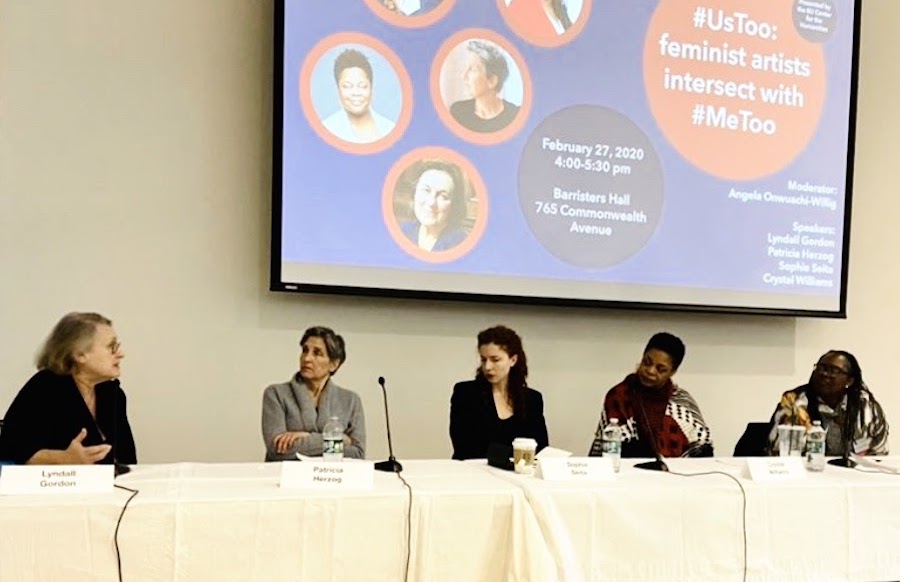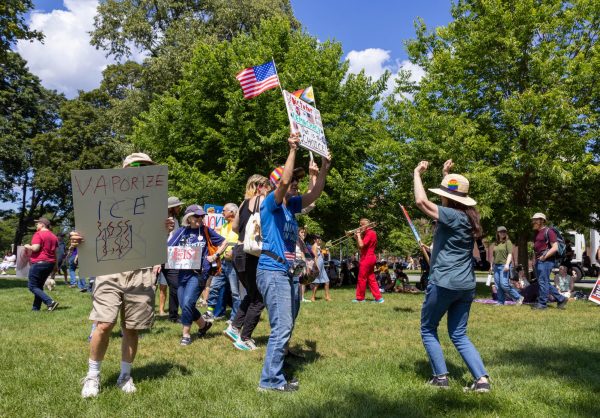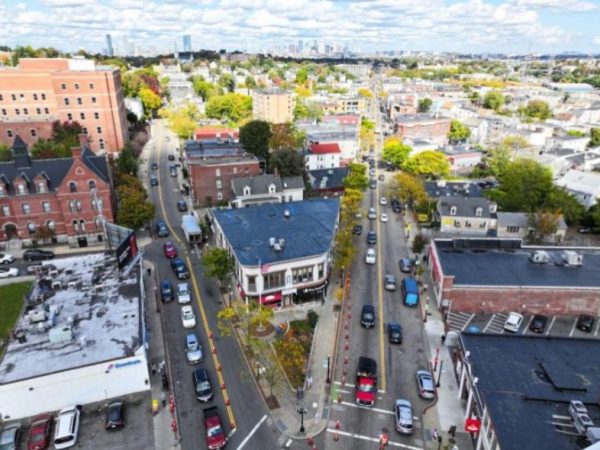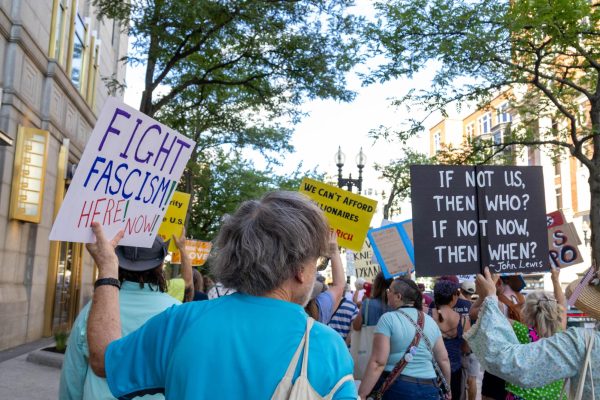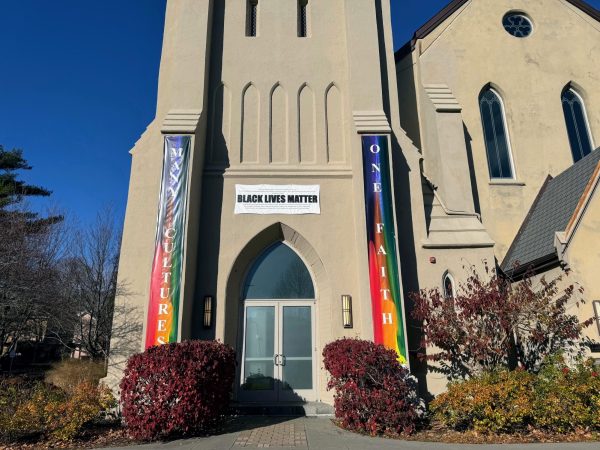#MeToo or #UsToo? BU panel discusses inclusive feminism
Photo: Mayra Parrilla Guerrero
Panelists discussed the intersection of art and inclusive feminism at Boston University’s Law School, Feb. 27.
Professors, writers and musicians came together at Boston University last month for a panel discussion about the #MeToo movement and inclusive feminism.
Hosted by the university’s Center for the Humanities on Feb. 27, the panel featured Lyndall Gordon, Patricia Herzog, Sophie Seita and Crystal Williams, and was introduced by BU professor and author, Susan Mizruchi. An audience of about 45 gathered at the School of Law on Commonwealth Avenue to hear the artists talk about their work and that of other feminist artists and examine inclusivity of the #MeToo movement.
While the movement has gained strong momentum, with many women coming forward with their stories of abuse or mistreatment, many people have felt the lack of representation of women of color in the stories being told. The panel was organized in order to address these missing perspectives and to initiate a conversation about the meaning of inclusive feminism.
“The narratives that exist in culture around survivorship, what that looks like are really narrow. We need to do work to understand the plethora of realities that are the result of sexual violence,” said Williams, Associate Provost for Diversity and Inclusion and Professor of English at Boston University.
A large part of the afternoon was spent discussing sexual harassment and the impact the #MeToo movement has made in regards to women coming forward with their experiences. The term #MeToo was coined in 2006 by survivor Tarana Burke, before numerous female actors and artists, including Alyssa Milano, asked their followers to use social media to post the hashtag in solidarity with those who have experienced sexual assault or harassment.
Panelists discussed the historical depiction of women across the arts. Herzog, a philosopher and writer, discussed her latest work “The Resurrection of Lucretia,” a retelling of a historical opera, where the protagonist commits suicide after being raped. In this her updated version, the female protagonist is resurrected so that her voice may save other women in her town. They spoke at length about the imagery of silence and its long-time association with the representation of women. They agreed that there is a need to diversify who holds the power that dictates the foundation of these stories and their narratives. “We are in a current moment of retelling,” said Herzog.
Williams chose to read poems by June Jordan, a Jamaican American bisexual poet, and Lucille Clifton, Maryland Poet Laureate of West African descent, both of whom were also women of color who wrote about their own unique experiences within society’s power structures. The poem Williams said has impacted her the most was June Jordan’s “A Poem About My Rights,” which discusses the sexual assault of women of color and the empowerment in taking back control of their bodies and minds.
“I love June Jordan, I love her work and I think her poem is still very relevant to what is happening currently and I just thought the poem was the perfect piece to share in these days of the #MeToo movement,” Angela Onwuachi-Willig, Dean of Boston University Law School, said.
Osa Mudia, a lawyer who attended the event said, “The panel was very interesting … I really wanted to see how the #MeToo movement intersects law and arts, two seemingly very different sectors. It was good to learn about a new perspective on the movement I wasn’t really aware of.”
In an interview after the event Mizruchi said, “It is important to have these discussions from these women of diverse backgrounds. The #MeToo movement is too important for the current and the next generation of women and we need to understand the importance of how different backgrounds intersect into the conversation.”
A major takeaway for many audience members was the way each panelist highlighted the power of women, inspiring them to speak out against silence whether through their art or other avenues available to them.
“Having conversations like these gives me a little bit of hope,” said event attendee and course assistant at Boston University, Mari Rooney. “It makes me happy to see women discussing the issues that need to be discussed, especially in regards to art and how they have identified the inequality we as women have had for centuries.”


